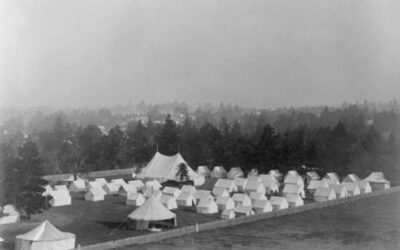We are a global family with over 20 million members across 215 countries and territories. This includes the following membership numbers in three divisions that cover the continent of Africa (as of 2021:
- 4,666,780 in the East-Central Africa Divison1
- 4,184,684 in the Southern Africa-Indian Ocean Division 2
- 905,667 in the West-Central Africa Division3
We also have one of the largest healthcare systems in the world, as well as about 9,000 Adventist schools and universities.4
So maybe you’re hearing about Adventists for the first time.
You might have recently learned that your friend, neighbor or co-worker is an Adventist. Maybe a family member attended an Adventist event or church service. Maybe you drove past an Adventist school, college or hospital.
Whatever the case, you might be curious, and we get it. You want to better understand Adventists so that you know how to relate with us.
Don’t worry! You’ll find that we’re not that different from anyone else. We know what it’s like to experience real struggles—stressing over finances, dealing with tension in relationships, or trying to raise children in today’s world.
But we find our hope in a personal relationship with Jesus. His strength helps us to live a life that honors God.
So let’s answer some questions you may have:
- How did the Adventist Church start?
- What does the name Seventh-day Adventist mean?
- What does it mean to be an Adventist?
- What makes Adventists different from others?
- How do Adventists live?
How did the Adventist Church start?
 The Adventist Church started in the United States during the 1840s. It came after the Millerite Movement, which preached the imminent second coming of Jesus. In fact, they thought Jesus was supposed to come in 1844. When that didn’t happen, a group of believers began studying their Bibles again to see where they went wrong. The insights they discovered led them to eventually form the Adventist Church in 1863.
The Adventist Church started in the United States during the 1840s. It came after the Millerite Movement, which preached the imminent second coming of Jesus. In fact, they thought Jesus was supposed to come in 1844. When that didn’t happen, a group of believers began studying their Bibles again to see where they went wrong. The insights they discovered led them to eventually form the Adventist Church in 1863.
Bible students like Ellen and James White, Joseph Bates, Hiram Edson, and other former Millerites pored over the Scriptures. As they did so, they discovered new insights into its prophecies and the messages of the three angels in Revelation 14.
They saw these messages as God’s means to prepare the world for the Second Coming (Revelation 1:7; 14:14–16).
In short, those messages are:
- An announcement of the judgment and a call to glorify and worship the Creator (Revelation 14:6–7)
- A call to come out of religious confusion and unbiblical teaching (verse 8)
- A call to be loyal to the commandments of God and the faith of Jesus (verses 9–11)
This mission spurred the movement and caused it to grow, and in 1863 the General Conference of Seventh-day Adventists was officially organized in Battle Creek, Michigan.5 At that time, it had 3,500 members and 125 churches.
It wasn’t long before Seventh-day Adventism was spreading to other parts of the world.
In 1871, a new Seventh-day Adventist, a man by the name of William Hunt stepped foot in Kimberley, South Africa, and shared the biblical truths with other missionaries there. A small congregation began to form, and it wasn’t long before missions and schools began reaching out to other countries in the area which eventually became the Southern Africa-Indian Ocean Division of the church.6
Meanwhile, Seventh-day Adventists came to Egypt in 1878 and 1879. In 1901, the first church was established, and Adventists began focusing on ways to reach Africa from there.7
Today, with over 20 million members and 90,000 churches,8 it still remains committed to God’s Word and sharing the hope and inspiration of the three angels’ messages.
What does the name Seventh-day Adventist mean?
The name Seventh-day Adventist is divided into two parts—each with its own significance. It refers to our belief in the Seventh-day Sabbath and our expectation of the soon-coming of Jesus Christ.
Let’s look at each part more.
Seventh-day means we believe Saturday, the seventh day of the week, is God’s Sabbath. We believe in keeping the fourth commandment—as well as the other nine commandments—because God’s laws do not change. And we do this not to earn salvation but out of love for God; it’s sacred time that we get to spend with God and acknowledge Him as Creator.
Adventist shows that we await the second coming of Jesus—it’s the grand hope we’re living for. In Christian theology, the word advent means “coming” or “second coming of Christ.” If Christ were not coming again, we’d have no hope of escape from sin, suffering, and death. That’s why we keep His return as our focus.
What does it mean to be an Adventist?
 Being Adventist, at its very core, is about loving Jesus and His Word, the Bible. In fact, Seventh-day Adventists are known as “people of the Book” because this book—the Bible—is the base for every one of the church’s 28 fundamental beliefs. They highlight how God is restoring our relationship with Him so we can experience the beautiful life He intended for us—now and forever.
Being Adventist, at its very core, is about loving Jesus and His Word, the Bible. In fact, Seventh-day Adventists are known as “people of the Book” because this book—the Bible—is the base for every one of the church’s 28 fundamental beliefs. They highlight how God is restoring our relationship with Him so we can experience the beautiful life He intended for us—now and forever.
Here’s an overview:
In the beginning of earth’s history, Adam and Eve doubted God’s character of love and chose to learn about what evil was (Genesis 3:1–6). This broke the relationship they had with Him, causing sin—selfishness—to enter our world.
Adventists believe that God sent Jesus to reveal the true character of God to the world and to heal the rift caused by sin. Through His life, death, and resurrection, we can be forgiven and freed from sin’s eternal consequences (1 Peter 2:21–25). He gives us eternal life (John 3:16).
We accept this gift of Jesus, believing we are saved by grace through faith (Ephesians 2:8–9). Though we can never do anything to earn that gift on our own strength, Jesus’ grace through the Holy Spirit empowers us to live out His love (Romans 8:3–5).
It all starts with knowing Jesus.
Adventists study both the Old Testament and New Testament because they reveal who Jesus is (John 5:39). We believe that the Holy Spirit inspired the Bible for the benefit and instruction of people across time and culture. Through its stories and teachings, we find overarching principles that guide us in living out our love for God (2 Timothy 3:16–17; 1 John 5:2–3).
As we recognize how much Jesus has done for us in saving us from our sins, our love for Him grows and becomes the motivating factor in our lives. It leads us to keep God’s commandments (John 14:15), which are simply the boundaries for healthy relationships with Him and one another (Matthew 22:37–40; Galatians 5:14).
Adventism boils down to knowing Jesus and living to glorify Him.
But you may be wondering:
What makes us unique from other Christian denominations?
What makes Adventists different from others?
As we’ve already seen, Adventists have many similar beliefs to other Protestant Christians—beliefs about the life, death, and resurrection of Jesus, salvation, the Godhead, the Holy Spirit, and the Bible’s importance, to name a few. But there are some differences too. Here are a few:
- A literal six-day creation
- Humans as holistic beings
- The seventh-day Sabbath
- Free will
- The sanctuary in heaven
- In-depth study of Bible prophecy
- Hell as nonexistence, rather than eternal torment
 Let’s look at each one.
Let’s look at each one.
Literal six-day creation
Adventists look to Genesis 1 and 2 for the earth’s origin. We believe that God created the world in six literal days, an evening and a morning, instead of long expanses of time.9
Humans as holistic beings
God created human beings with an interconnected mind, body, and spirit. Genesis 2:7 says that God formed Adam’s body and then “breathed into his nostrils the breath of life, and the man became a living being” (NKJV).
The word for “being” is the same word translated “soul” in other versions. Instead of humans having souls that are separate from their bodies, the body and breath together make a soul.
This understanding of the soul shapes the way that we view death. When a person no longer has the breath of life, that person ceases to exist (Ezekiel 9:5–6) and rests in the grave (John 11:11–14, 43) until Jesus returns at the Second Coming.
The Sabbath
 When God finished Creation, the Bible says that He “blessed the seventh day and sanctified it” (Genesis 2:3, NKJV). Later, He repeats the Sabbath in the fourth commandment (Exodus 20:8–11) as a reminder of Creation and salvation (Deuteronomy 5:15).
When God finished Creation, the Bible says that He “blessed the seventh day and sanctified it” (Genesis 2:3, NKJV). Later, He repeats the Sabbath in the fourth commandment (Exodus 20:8–11) as a reminder of Creation and salvation (Deuteronomy 5:15).
Adventists keep the Sabbath out of their love for God and their desire to draw closer to Him. By faith, they rest one day a week, just as they rest in God’s saving power each day.
Free will
The freedom to choose whether to serve God is a vital part of Adventist beliefs. God has always provided this freedom, starting with the Tree of the Knowledge of Good and Evil in the Garden of Eden (Genesis 2:16–17).
Why is it so important?
As a relational God (1 John 4:7–8), He longs for a real relationship with His creations, based on love and willing service. This is not possible without freedom of choice. People can choose to follow Him, and they can choose to walk away from Him.
This belief fuels our relationship with God and our emphasis on religious liberty.
The heavenly sanctuary
The Old Testament sanctuary is like a roadmap for salvation, showing how God is restoring His relationship with us (Exodus 25:8). It reflects the heavenly sanctuary or temple—which is God’s very throne room in heaven. Each of the symbols points to Jesus Christ’s sacrifice, as well as what He is currently doing in heaven (Hebrews 8:1–6; 9:11–12).
Study of Bible prophecy

Photo by Sincerely Media on Unsplash
The study of Bible prophecy, particularly the books of Daniel and Revelation, has been part of Adventism since its beginnings. We believe that the Bible’s prophecies can be understood (Daniel 12:9; Revelation 1:3) and that studying them helps us see the big picture of our world and Jesus’ plan to restore it.
We also see the Adventist Church as being part of the remnant church in Bible prophecy as mentioned in Revelation 12:17:
“And the dragon was enraged with the woman, and he went to make war with the rest of her offspring, who keep the commandments of God and have the testimony of Jesus Christ” (NKJV).
The word remnant refers to a small remaining quantity of something, and this passage describes a small remaining group of people that will keep the commandments of God and have the testimony of Jesus Christ.
Hell as nonexistence, not eternal torment
We believe that eternal torment in hellfire is not consistent with the character of God and His desire for us to have freedom of choice. What’s more, Scripture tells us that only those who choose Christ will receive eternal life.10
But sin cannot exist in God’s presence. In order for Him to live with us face to face once again, He must put an end to it.
Before God re-creates the earth, it will temporarily become a lake of fire in which sin and those who choose to hold onto it will be permanently destroyed—known as “the second death.” Death, sickness, sadness, and evil will vanish away too (Revelation 20:14–15; 21:1).
These differences are a brief summary of what Adventists believe. To learn more, check out our fundamental beliefs.
How do Adventists live?
The Adventist lifestyle is simple, allowing us to focus on our mission to help others. Instead of prescribing specific behaviors, we allow the Bible’s principles and our love for Jesus to guide every part of our lives:
- Personal spirituality
- Church involvement
- Sabbath keeping
- How we appear to others
- Stewardship
- Health decisions
- Serving others
Because we don’t look that different from other people, you may already know an Adventist and not even realize it!
But here are some principles we try to live by.
Personal spirituality and fostering a faith community
 A personal relationship with God is central to our lifestyle. We take time for personal devotion, which may look like Bible study, prayer, worship, or journaling.
A personal relationship with God is central to our lifestyle. We take time for personal devotion, which may look like Bible study, prayer, worship, or journaling.
Church community and worship are also important to us (Hebrews 10:24–25). Most Adventists attend church services and Sabbath School (the equivalent of Sunday School) weekly, while some go to midweek small groups or prayer meetings too.
And don’t forget food! Adventists love to gather for meals, especially after services on Sabbath. Theses gatherings are often potluck-style and are sometimes called “fellowship dinner“.
Speaking of Sabbath, how do Adventists keep Sabbath?
Sabbath keeping
Sabbath starts at sundown on Friday evening and continues to sundown Saturday (Leviticus 23:32). During this time, we set aside secular work and avoid conducting business. Often, we welcome the Sabbath with a time of worship that we call “vespers.”
Though convictions about Sabbath activities vary, Adventists agree that it is a day to focus on God and people. After all, it’s a day God originally set aside to stop and enjoy Creation. So we seek to do the same.
After church service, families might take walks or go on hikes, sing for nursing home residents, serve food at a homeless shelter, or other activities that serve others or that allow intentional enjoyment of nature.
How we appear to others

Photo by Annie Spratt on Unsplash
When it comes to clothing choices, we encourage modesty and simplicity (1 Peter 3:3–4), so that the focus is on character and not just getting noticed by what we wear. But because we see clothing as a matter of conscience between each individual and God, we don’t wear any special clothing or religious jewelry.
Stewardship of time and money
We believe in being good stewards of what God has given us. Thus, we use our time and money in ways that honor God (1 Corinthians 10:31) and reveal Jesus.
We also desire to be good stewards of our bodies (1 Corinthians 6:19–20). Let’s look at that next.
Health decisions
You may have heard that Adventists live an average of seven to ten years longer than the general population because of their lifestyle.

Photo by Pixabay
What’s the secret?
We take a holistic approach to health, using nature’s simple means for optimal physical, mental, and spiritual health.
For one, we completely avoid alcohol, smoking, and unclean meats (Leviticus 11).
Second, we follow lifestyle principles that include eating a healthy diet (often vegetarian), exercising, drinking plenty of water, spending time outdoors, resting, and much more!
In fact, because of our health practices, researchers at Loma Linda University began the Adventist Health Study, which has become well-known in research circles.
But health benefits aside, the Adventist lifestyle flows from our desire to be close to Jesus and honor Him. It helps us fulfill our mission and experience a better life here on this earth.
Serving others
Adventists are people who love to serve others. We do this on a local level through simple activities, such as helping someone in the community with yard work or delivering holiday meals to people in need. Some churches also run food and clothing banks.
On a global scale, Adventists operate an agency called ADRA (Adventist Development and Relief Agency) that assists people who have been in disasters both overseas and in the U.S.
Thus, on a small and large scale, we’re all about allowing God to use us to care for the people around us.
Adventists look to Jesus and His Word.

Photo by Aaron Burden on Unsplash
Started by a group of believers who prioritized the study of the Bible, the Adventist Church has upheld this legacy. Its members and church leaders continue to seek Jesus through His Word.
Yes, we struggle; but we’re always looking to be more like Him and help others know Him.
Because we are a global movement, the Adventist lifestyle doesn’t look the same for everyone. Instead, each member follows the Holy Spirit in applying the Bible’s principles.
But one thing is constant:
The importance of the Bible and God’s mission to restore us through Jesus Christ. This shapes each one of Adventism’s fundamental beliefs.
And it shapes our lives too.
- “East-Central Africa Division,” Seventh-day Adventist Church: Office of Archives, Statistics, and Research. [↵]
- “Southern Africa-Indian Ocean Division,” Seventh-day Adventist Church: Office of Archives, Statistics, and Research. [↵]
- “West-Central Africa Division,” Seventh-day Adventist Church: Office of Archives, Statistics, and Research. [↵]
- “Seventh-day Adventist World Church Statistics 2020,” Seventh-day Adventist Church, adventist.org. [↵]
- Maxwell, C. Mervyn, Tell It to the World, (Pacific Press, Nampa, ID, 1977), p 145. [↵]
- “100 Years of Africa’s Pioneering Division,” Adventist World. [↵]
- Lang, Peter, Seventh-day Adventist Contributions to East Africa, p. 13–15. [↵]
- “Seventh-day Adventist World Church Statistics 2020,” Seventh-day Adventist Church, adventist.org. [↵]
- Genesis 1:5, 8, 13, 19, 23, 31 (ESV) [↵]
- Romans 6:23; John 17:3; Matthew 19:16-22, 29; John 3:16, 36; 6:40, 47; Romans 5:21; 1 John 3:15; 5:11; Jude 1:21 [↵]
Related Articles
More Answers
Do Seventh-day Adventists Celebrate Holidays?
Wondering whether your Seventh-day Adventist classmate or coworker keeps the same holidays you do? Perhaps you want to include them in some festivities, but you also want to make sure you respect their beliefs.
What Is an Adventist Book Center (ABC)?
When you walk into any one of the many Adventist Book Center (ABC) locations, chances are you’ll be greeted by pleasant gospel music in the background, friendly employees, and row after row of Christian books, movies, Bibles, study guides, kids’ games, and more.
A Look at Adventist Colleges and Universities
On the outside, Seventh-day Adventist universities may not look much different than other college campuses. But the real differences are beneath the surface.
What Are Pathfinder and Adventurer Clubs?
What Are Pathfinder and Adventurer Clubs?Like the boy or girl scouts, Pathfinders and Adventurers learn about nature and life skills. But what makes these clubs special is their purpose to bring young people closer to Jesus. If you’ve wondered about Pathfinder or...
What Is a Seventh-day Adventist Camp Meeting?
Although camp meetings didn’t begin with the Seventh-day Adventist Church, they’re very common to Adventists.
Do Seventh-day Adventists Believe Only They Will Go to Heaven?
No, Adventists definitely don’t believe they’re the only ones that will go to heaven. As a matter of fact, we don’t believe admittance into heaven is ever based on which church or denomination we belong to. People all over the world from different Christian denominations, religions, and walks of life will be welcomed by Jesus Christ.
How Adventists Handle Death and Funerals
Most Seventh-day Adventist funeral services are similar to those of other Protestant denominations, such as Methodists, Baptists, or Presbyterians, but you might find a few differences or unique nuances.
Does the Adventist Church Have Youth Ministry Programs?
Does the Adventist Church Have Youth Ministry Programs?The Seventh-day Adventist Church has been organizing and operating youth ministry programs since 1879. In our opinion, youth ministry is one of the most important ministries a church can have. Being a tween or a...
How does one become a Seventh-day Adventist?
To be a Seventh-day Adventist Christian means to accept Jesus Christ as Lord and Savior. This means to recognize that Jesus alone can save you from sin and death (Savior) and to give Him full authority over your life (Lord and Master).
What Are Adventist Evangelistic Meetings?
The Seventh-day Adventist Church puts a huge emphasis on sharing the gospel through evangelism, or sharing the gospel through preaching, teaching, and testimony. One of the ways we accomplish this is by organizing public events called evangelistic meetings.
What Do Adventists Offer for Young Adults?
What Do Adventists Offer for Young Adults?In recent years, the age group often classified as “young adults” has been trickier to engage. It’s been a significant concern for Christian churches around the world. Though interestingly enough, similar observations...
Does the Seventh-day Adventist Church Believe in Paying Tithe?
Seventh-day Adventists believe in paying tithe and offerings based on the biblical command and our commitment to being wise stewards of God’s resources. These donations help fund the mission of the Adventist Church by supporting pastors, missionaries, church expenses, and evangelistic projects, among other things.
The Leadership Structure of the Seventh-day Adventist Church
The Leadership Structure of the Seventh-day Adventist ChurchThe Seventh-day Adventist Church has a representative form of structure that connects its 90,000-plus congregations across the globe and gives its members a part in decision-making. Though the Church was...
Seventh-day Adventist World Population and Demographics
Did you know that the Seventh-day Adventist Church has more churches around the world than all the Pizza Hut, McDonald’s, and Subway restaurants combined?
Do I Need to be an Adventist to be Saved?
The answer to this question is simply, “no.”
All about Adventist Elementary Schools
The Seventh-day Adventist Church operates the largest Protestant education system in the world. A big part of this system is our K-8 elementary schools, or primary schools, as they’re known in other parts of the world.
Everything You Need to Know About Sabbath School
Sabbath School is the Bible study component of the church program at most Seventh-day Adventist Churches. It’s a time of Bible study on a specific topic or lesson. Instead of listening to a preacher, people interact with one another, making it a great opportunity for building friendships.
What Is Vespers?
Friday rolls around, and you’re spending time with your friends or relatives when they mention they’re going to vespers this evening.
Do Seventh-day Adventists Believe in Medical Care?
Adventists talk a lot about health principles and disease prevention. But how do we handle sickness and medical needs when they inevitably come along?
Do You Have to Be Vegetarian to Be Adventist?
Of course not. Membership in the Seventh-day Adventist Church has never included any dietary requirements.
How Do Adventists Do Baby Dedications?
For Christians, dedication ceremonies for babies are a special and memorable time for parents and the church. They often happen during a congregation’s main worship service when parents present their child before God and the church community, similar to how families did in the Bible.
What to Expect When You Go to an Adventist Church
If you’re attending an Adventist church for the first time, you may wonder what it’s really like. While each Adventist church is unique in its collective personality and local culture, Adventist church services are generally similar to most other Protestant Christian church services.
Everything You Need to Know About Sabbath Meals
For Seventh-day Adventists, sharing a Sabbath meal with friends and family is one of the most special and memorable parts of the Sabbath.
Why do Adventists Emphasize Religious Liberty?
Adventists see religious liberty as an essential human right. After all, God endowed humanity with freedom of choice from the very beginning. So we believe it’s best for governments to also support their citizens’ rights to worship based on their convictions.
All About Seventh-day Adventist Colporteurs
The Seventh-day Adventist Church uses a variety of methods to spread the hope of the gospel to the world. One of these ways is through colporteuring, also called “canvassing” or “literature evangelism.”
The Benefits of A Seventh-day Adventist Academy
Adventist academies are high schools (grades 9-12) that are owned and operated by the Seventh-day Adventist Church.
Evangelism
Evangelism is simply sharing the truths of the Bible with someone else. And Adventists are all into it.
Adventist Pastors
What is the role of a pastor in the Adventist Church?
Do Adventists Celebrate Christmas?
In many parts of the world, Seventh-day Adventists celebrate Christmas as a way to remember the birth of Christ. In certain parts of Africa, though, Christmas is much more low-key for Adventists, having less to do with religion and more to do with family time.
Didn’t find your answer? Ask us!
We understand your concern of having questions but not knowing who to ask—we’ve felt it ourselves. When you’re ready to learn more about Adventists, send us a question! We know a thing or two about Adventists.


































